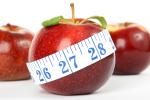If you like reading about philosophy, here’s a free, weekly newsletter with articles just like this one: Send it to me!
Are you happy?
We can immediately see that this question will not be easy to answer. For one, there seem to be different time-scales of happiness. I can be happy with my life as a whole, but unhappy at this particular moment, because I lost my keys. Second, my happiness can be different in different areas of life: I can be happy about my job, but unhappy about the bad grades of my child at school. Third, how much happy counts as happy? If I’m not sad, am I already happy (like Epicurus would say)? If life is so-so, does this count? Or do I have to be very, or even extremely happy? Is happy the same as joyful,or ecstatic, or do these count more?
And finally, here’s an interesting question: can I be wrong about being happy? Can I honestly believe that I’m happy, but be wrong about it, so that in reality I am not happy at all?
Clearly, this question needs some thought.
Monks and stockbrokers
Can I be wrong about being happy?
Obviously, it depends a bit on how I’ll measure my happiness. Do I believe that happiness is some objective state that I can measure, in the same way as I can measure my height or my weight? Clearly, I can be mistaken about my weight. I might believe that I’m 90 kg, but when I actually step on a scale, I see that I’m 95.
It is less obvious whether I can be mistaken about things that are not objectively measurable or verifiable. For instance, can I be mistaken about what I dreamed last night? Is it possible to believe that I dreamed about horses, while I (objectively, actually) did dream about cars? It seems possible to say so, but how would I ever know that, since I am the only one who knows about my dream and I am also the one who is mistaken? Although I might, in principle, be mistaken about my dream, there is no way I could ever find out about that, or about what I “really” dreamed of.

Recommended for you:
How Happy Does This Make You?
Happiness researchers are faced with the question how to reliably measure happiness in surveys. We present three approaches discussed by economist Daniel Kahneman.
So what about my happiness? Is happiness more like a dream, a private, subjective state, only accessible to myself, or is it something I can measure and check, like my weight or my height?
In our Western, organised societies, we generally believe that happiness is correlated to measurable outcomes. This is what makes our politicians try to reduce crime, …
Read the full article which is published on Daily Philosophy (external link)





